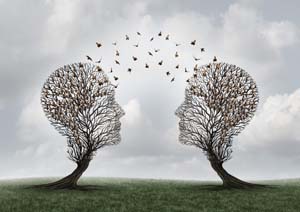What Can We Learn from Thinkers Beyond the West?

 In the Second Enlightenment, if we are to address our most psychological and environmental concerns, we have to leave the door open to all genius enlighteners from all regions of the world. We humans in a depersonalized and technological age are facing deeper existential crises than any other time in recorded history. The availability of the best of wisdom, regardless of its origin, must be explored with respect and openness. Perhaps by sharing truly global wisdom, we can save both humans and our natural world.
In the Second Enlightenment, if we are to address our most psychological and environmental concerns, we have to leave the door open to all genius enlighteners from all regions of the world. We humans in a depersonalized and technological age are facing deeper existential crises than any other time in recorded history. The availability of the best of wisdom, regardless of its origin, must be explored with respect and openness. Perhaps by sharing truly global wisdom, we can save both humans and our natural world.
The intellectual and political debates of the first Enlightenment were almost exclusively focused on ideas coming from the literati of Europe and America, reverberating with Western intellectual heritage. But in fact, earlier “Enlightenments” as intellectual and exploratory movements also occurred on several occasions in places outside of the West including China, India, Central Asia, and the Near East, not to mention the precolonial South and North American and indigenous communities.
There were indeed a few attempts in Enlightenment Europe to include some non-European ideas, such as Leibniz’s introduction of Chinese thought into the European debates on universalizing human culture. But the very powerful tenets of Chinese philosophies remained on the periphery. Goethe had a bit more success, playing an important role in boosting the idea of ‘world literature’ (Weltliteratur) by incorporating Persian literature and Sufi wisdom into German poetical deliberation, taking German literature beyond its national and European frameworks. But again, aside from this, exposure to Persian literature and its key philosophical points in Europe and later in America remained almost exclusively within the small circle of Orientalists.
Schopenhauer also endeavored to incorporate Vedantic and Buddhist philosophies into his literary productions but this did not bring these Asian thoughts any greater prominent status in the Western intellectual debates either. So, in general, while some important scientific and mathematical achievements of the Asian thinkers which were translated into Latin between the 9th and 12th centuries were eventually highly influential in the European Scientific Enlightenment, most of the work of great thinkers from outside the Western world was ignored. It is an unfortunate that impediments such as nationalistic arrogance, colonialism and racism limited the Enlightenment’s inclusion of non-European thought.
Therefore, if we are to proceed with a new global Enlightenment, we must step outside of the parochialism of Europe and America. We must incorporate other profound philosophical and literary thoughts from elsewhere for debating and exploring solutions for the whole planet, not just from or for one region or one country. Ageless wisdom and philosophies are significantly important and cannot be neglected in the global conversations. The attractiveness of these philosophies in our era are to be given a world-class status, and be made more accessible to a wider audience.
Including Indigenous and Global Wisdom
They often provide a roadmap of how to restore natural harmony in and around our lives. The modern interpretation of the essential realms of indigenous wisdom, including ‘community welfare,’ ‘non-hierarchical society,’ ‘high respect for the sacred feminine,’ ‘non-materialism,’ ‘sacred nature,’ ‘non-anthropocentrism,’ ‘mutual dependence,’ ‘generosity,’ ‘laws of nature are highest rules,’ ‘non-interference,’ ‘understanding and embracing dying,’ and much more are discussed in a captivating book, Restoring the Kinship Worldview: Indigenous Voices Introduce 28 Precepts for Rebalancing Life on Planet Earth by Wahinkpe Topa and Darcia Narvaez (2022). Even just the topic names demonstrate the incredible relevance and necessity of such understanding. The African philosophy of onuma – ‘wonder’ – if it were part of an all-inclusive conversation in the Second Enlightenment, would point the way toward a new sense of ‘wonder,’ including wondering how much more wisdom about human mind, nature and life have been buried in non-Western philosophies and how much longer we will continue to ignore it on large, government-level scales.
Other examples from around the world abound. Ecuador and Bolivia’s law-makers, thanks to the recommendations of the indigenous people, have given legal rights to rivers, trees, animals and the natural world. These two South American countries have pioneered making ‘ecocide’ a prosecutable offence at the International Criminal Court. And in the meantime, great Asian philosophers from 2,700 years ago onward have been making their contributions in dealing with and elucidating human existential conundrums, through wisdom in Buddhist and Indian philosophies, Sufism, etc. There is probably nothing more urgent for our century than bringing in the transcultural wisdom in a new set of conversations for exiting the dilemmas we are caught in.
The Asian philosophers from 2,600 years ago onward have made their significant contribution in dealing with and elucidating human existential conundrums. There is probably nothing more urgent for our century than bringing in the ancient wisdom in a new set of conversations for exiting the dilemmas we are caught in. For our modern dialogue, these philosophers’ ideas are quite relevant for the aims of being connected to nature, being aware of the laws of nature. Nagarjuna is quite relevant for understanding the reality of existence and coping with the impermanency of life. Omar Khayyam: the realization of the impersonal recycling of human life in connection with nature and yet capturing the opportunity of life, the moment that life provides to rejoice. Rumi’s universalizing, the language of setting aside our religious and national biases and looking deep into the heart of every human being, becoming one community. Symbolizes the modern secular human language of the 21st century.
The approach of Dogen, a Zen master of 13th century to the solution of the predicament of human existence is also relevant to our 21st century dialogue. He simplified the entire Buddhist scripture and Buddhist thought in simple phrases and a simple approach from which we can benefit so much. “The moment is perfect by itself, why do we need to practice anything?”
Similarly, Upanishads from 7th century B.C.E. onwards poured out treasure of wisdom, systematized as Vedantic thinking – the entire existence are all one non-dual entity. Brings us to 21st century human and nature are non-dual.
Among the many who could be integrated into global and civilizational debates, there are three prodigious Asian philosophers who merit special attention: Zhuangzi (4th B.C.E.), Nagarjuna (3rd C.E.) and Omar Khayyam (12th C.E.). These dialectical thinkers covered decisive themes such as nature, human psychology and the endless process of birth and death in existence in which we find our bewildered selves.
Following Laozi, the founder of Daoism, Zhuangzi focused on filling any cognitive and physical gap between human existence and the natural life. The Zhuangzi’s path was to remove the alienation from nature and emphasize the non-disruptive (wu wei) behavior as a reflection of natural behavior – doing enough to get things done, and staying calm to allow things happen at their own progression. Such naturalist philosophy in teaching a bewildered self has an eminent place in modern debates of human-nature relationship. The great Buddhist philosopher, Nagarjuna, on the other hand, introduced an astute awareness that equipped human cognitive faculty to understand and cope with the bigger picture of time. He expounded in the endlessness of time all phenomena are infinitely existing in an interdependent state – there is never an autonomous existence, nor a start line and a finish line, nor will there ever be a final product – the transmutation goes on and on. The repetition of rise and fall of all objects without any concrete anchor in existence keeps all things in an in-between state, which he called Middle Way (Madhyamika). His non-linear approach has been a breakthrough in understanding human optical illusion which tends to view the world and its objects linearly with a beginning and an end, with an eye that illusively sees things separate from one another. The other phenomenal thinker, poet and mathematician, is Omar Khayyam who with his famous Quatrains (Rubaiyat) drew our attention and closer to the impersonal and ferocious cycle of existence which is aloof to our emotions. With his eloquent and rational language, he reminds us since the unchanging laws spares no one, the essential purpose of life is then to cultivate pleasure and enjoy an anxiety-free state of being. He made complex philosophy of life easy and accessible for everyone. Khayyam’s enlightening message is universal and timeless. Of course, Rumi the 13th century Persian poet became a household name in the West and beyond, needs no introduction here. The content and the universal message of his poetry resonated with the psychological needs and bonds among humans from all cultures that revolutionized the 20th and the 21th centuries’ readings of Rumi, going beyond barriers of language and time. These non-Western thinkers are just the tip of the iceberg in promoting transcultural and universal conversations in the Second Enlightenment.
